17 Jun Community Chat Now Available Online- Safeguarding Our Water: PFAS Q&A
Our first PFAS Community Chat is now available on our YouTube channel! OWASA hosted our first in a series of community chats about PFAS last week at the Chapel Hill Public Library. The event connected local environmental law, regulatory, and utility finance experts, with community members to discuss how to fund PFAS removal from drinking water.
Panelists:
*Shadi Eskaf, Director, N.C. Division of Water Infrastructure
*Jean Zhuang, Senior Attorney, Southern Environmental Law Center (SELC)
*Stephen Winters, Deputy Executive Director, Orange Water and Sewer Authority
Summary:
This initial PFAS Community Chat focused on PFAS funding, specifically, how public water systems are going to afford PFAS removal technology and how it will affect ratepayers. OWASA’s Deputy Executive Director, Stephen Winters, provided essential background by highlighting how OWASA is a medium-sized, stand-alone entity, meaning OWASA does not receive funding from taxes and is solely funded by ratepayers. Without funding support from state or federal agencies, the only way OWASA can fund PFAS removal technology and continue to meet EPA standards is by raising rates.
Jean Zhuang, a senior attorney at the Southern Environmental Law Center (SELC), described how the SELC is fighting to put the burden of PFAS removal on those who caused the pollution in the first place. The SELC is involved in multiple lawsuits against chemical manufacturers, such as Chemours, that are responsible for PFAS pollution in the Cape Fear River.The SELC is working to identify which industries are releasing this toxic waste into the upstream service area and whether they can be held accountable.
Shadi Eskaf, director of the N.C. Division of Water Infrastructure, discussed the options for federal and state funding for public water utilities to address PFAS pollution. The N.C. Department of Environmental Quality (NCDEQ) provides federal and state funding to public water systems through low-interest loans and grants to study PFAS treatment technologies and improve infrastructure to remove PFAS from drinking water. Much of this funding comes from the Infrastructure Investment and Jobs Act, which includes funding to remove lead service lines and emerging contaminants, such as PFAS.
The need for funding to remove PFAS from drinking water in North Carolina far exceeds the available funding. Part of the NCDEQ’s responsibility is to ensure this funding is allocated equitably among eligible water utilities that apply. In North Carolina, there are currently 300 public water systems, like OWASA, and 500 local government water systems affected by PFAS pollution that are eligible for this funding. Some of the criteria to secure funding include:
- Any public water system can apply (application is open twice a year)
- Applications for PFAS projects are highly prioritized
- Applications for projects that protect public health and the environment are highly prioritized
- Applications from water utilities serving disadvantaged communities are highly prioritized
OWASA has applied for funding to help pay for construction of a new PFAS treatment facility. OWASA is also involved in a class action lawsuit against PFAS manufacturers. This lawsuit has been settled and OWASA does expect to see some compensation, but not enough to cover cost of construction. OWASA’s Board of Directors recently passed the Fiscal Year 2025 budget, which included a 15% rate increase. Close to half of this rate increase will go toward funding a $75 million project to construct a PFAS treatment facility at the Jones Ferry Road Water Treatment Plant.



